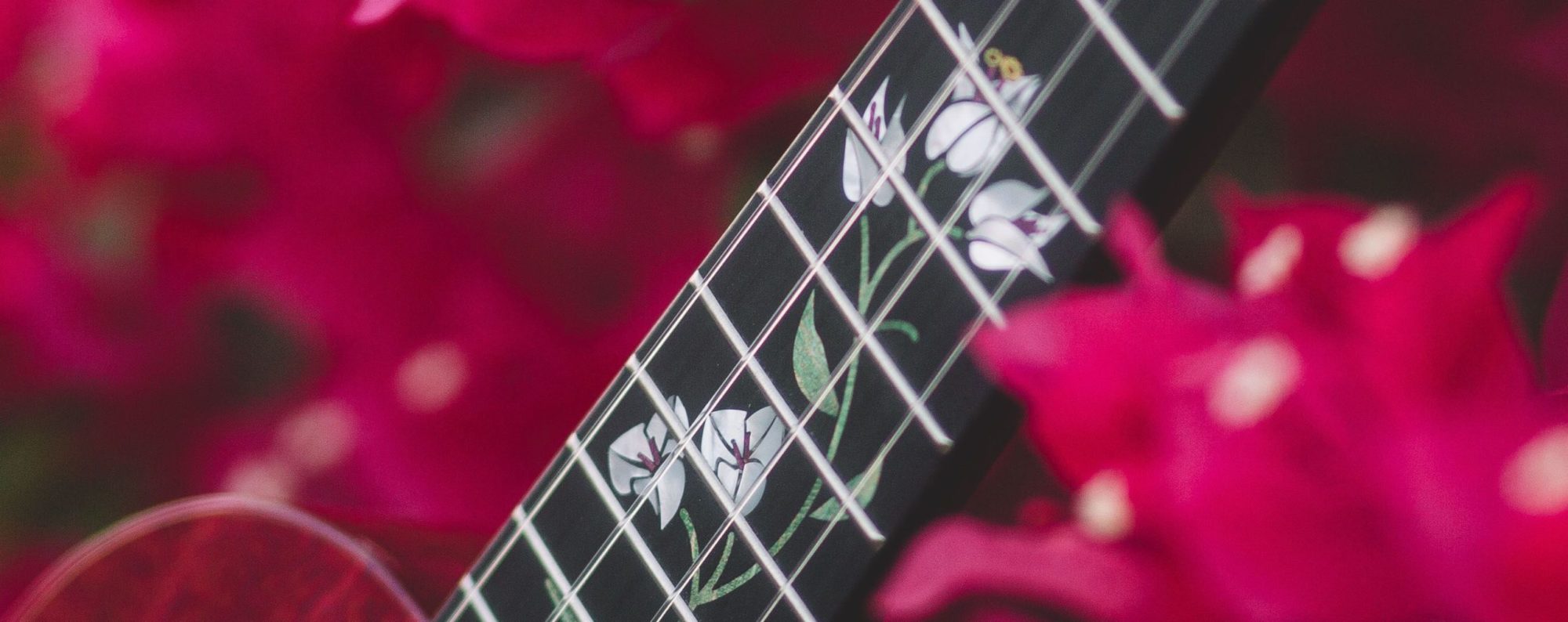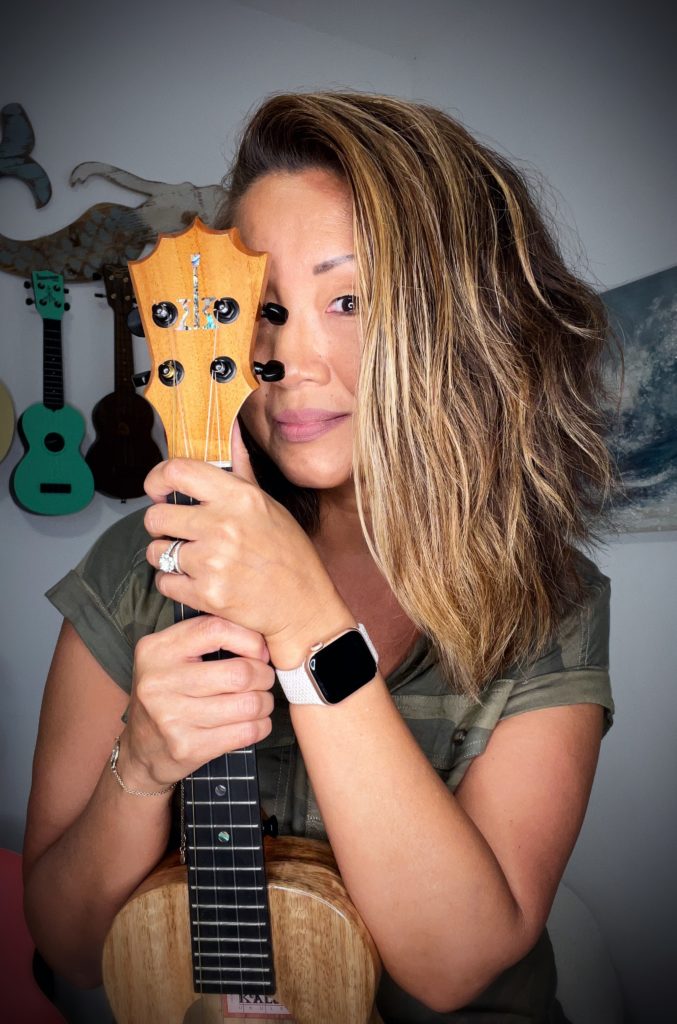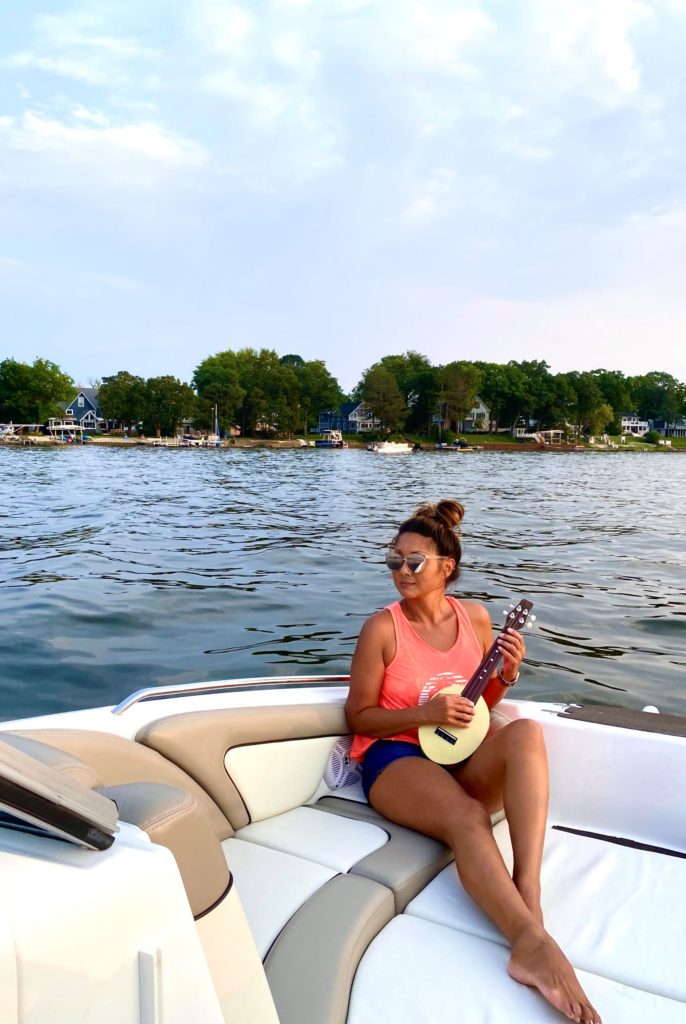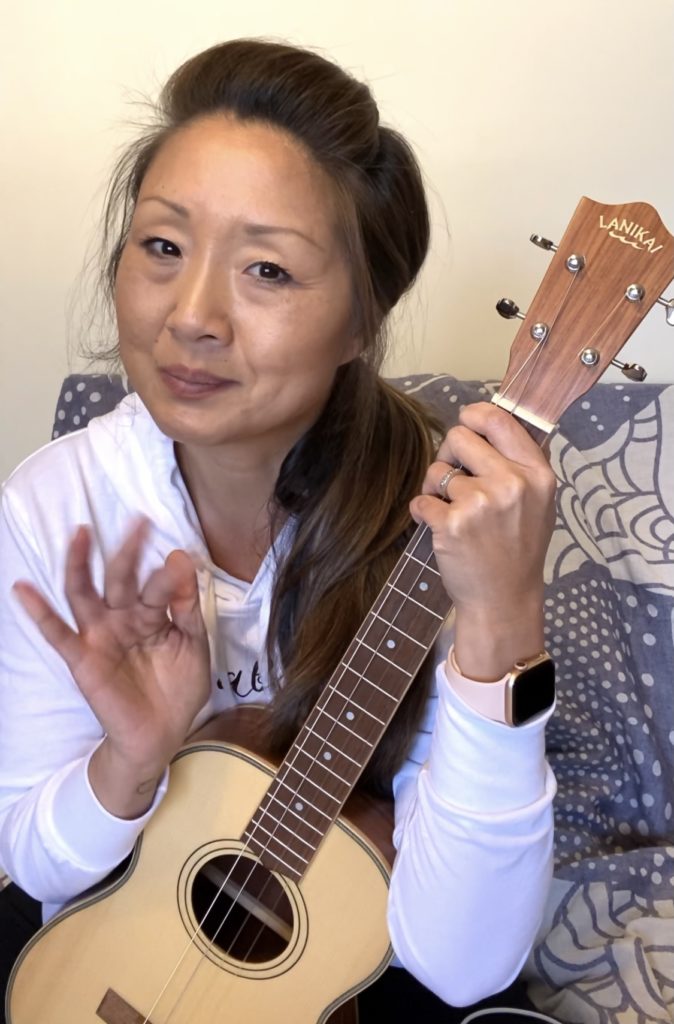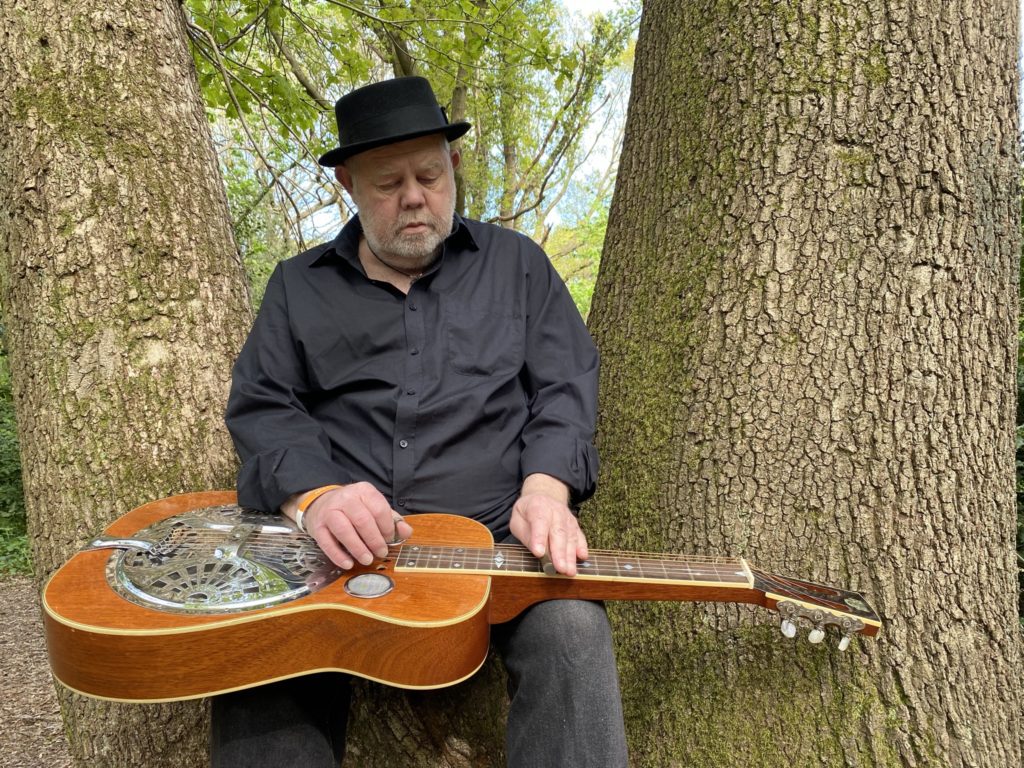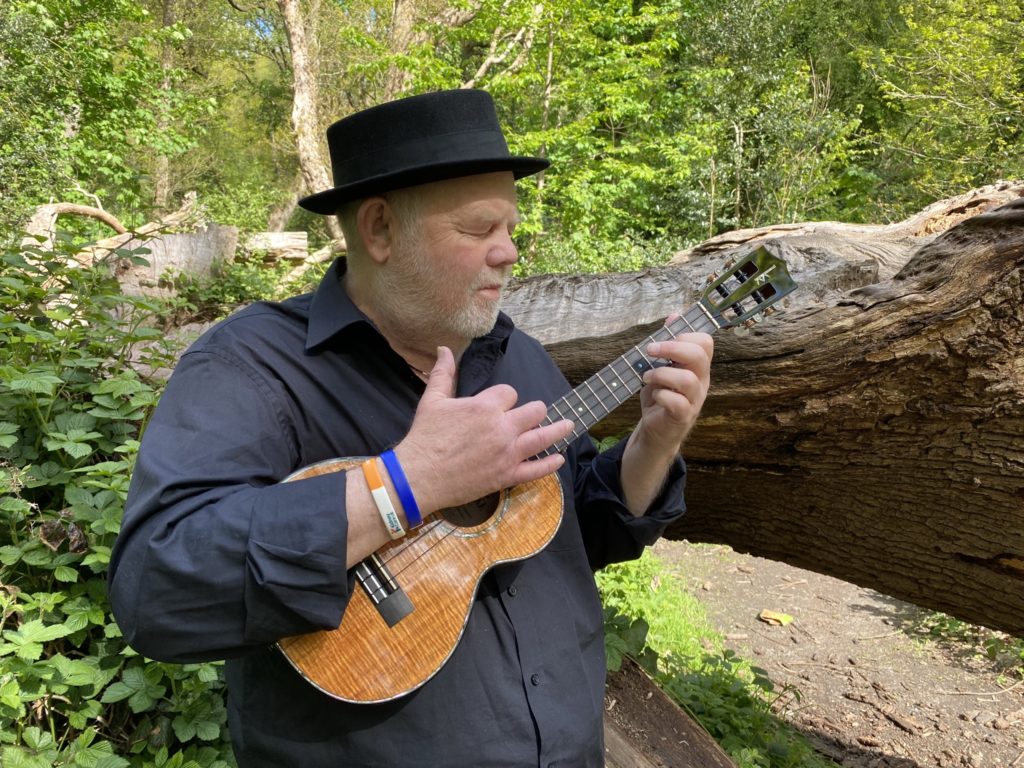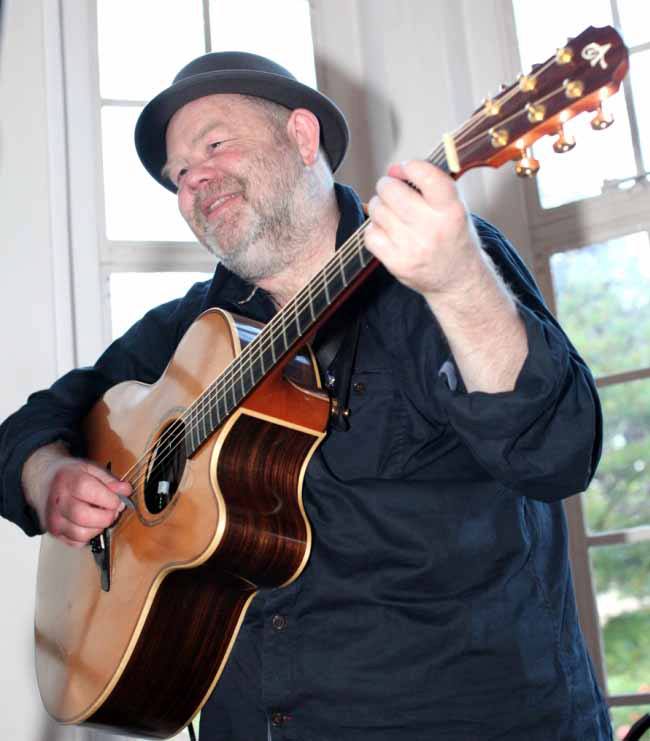by Dave Thorpe
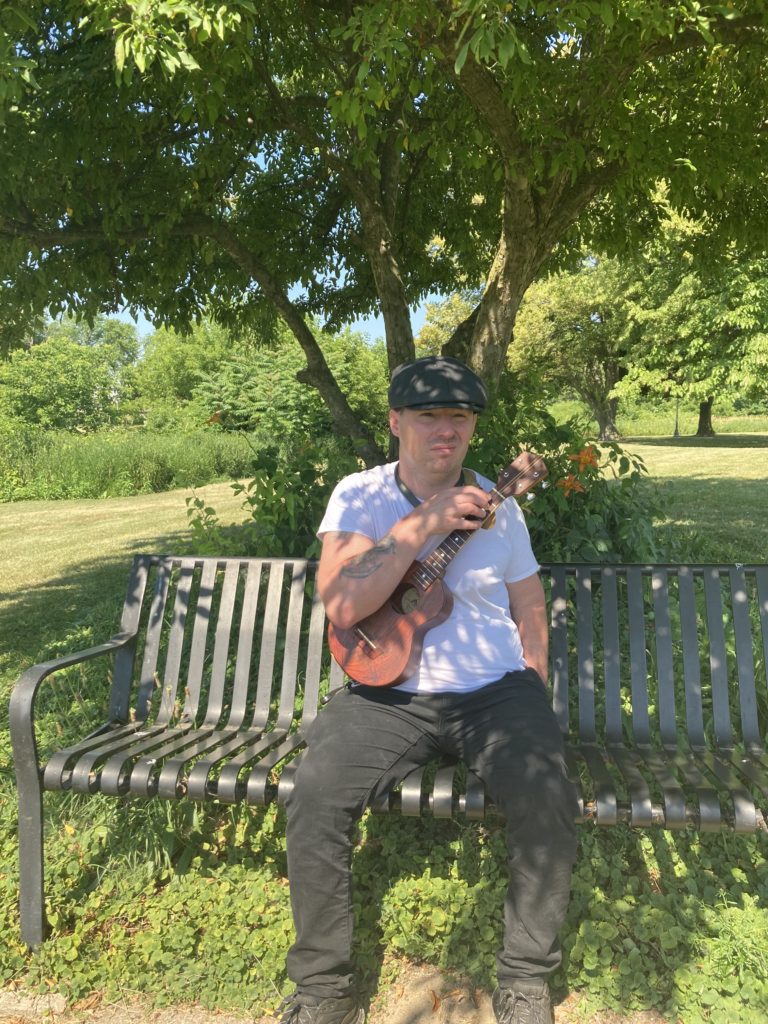
Any regular Ukelandia Facebook followers cannot fail to have been intrigued, impressed and inspired by the playing of our own Karl Jackson. Karl has been a member of Ukelandia since December 2021 and is a regular, and valued poster of videos. Karl has a unique personally developed playing style necessitated by the fact that he has one arm. In this interview I discuss with him his ukuleles, the development of his playing and his ambitions.
Hi Karl – an obvious starter – what got you into playing ukulele and how did you come across the Ukelandia community?
I first took an interest in the ukulele after my youngest daughter said she wanted to learn to play in 2019. Helping her get started watching tutorials online made me realize that I wanted to learn as well, though I had been told by music instructors in the past that playing more than hammer-ons on a stringed instrument would be impossible.
What scale lengths do you use (soprano/concert/tenor/baritone) – are some more suited to your style than others?
My preferred scale length is concert, though I can play any of the differing sizes of ukulele. I found that the concert size fits best for my playing style as it best matched the length of my forearm. The longer scales require me to reach for the first few frets, that’s why I play the longer scales with the ukulele resting on my lap still.
Obviously, you have to do the job of two hands – strumming and fretting the notes – with one. For anyone who has not seen you play can you describe the mechanics of what you do?
To learn to play I had to train my fingers to do specific jobs on the fret board. I started with my ukulele lying on my lap face up like a dulcimer or lap steel guitar, fretting one string at a time with my index finger and picking the string with my pinky. As I built up the muscles needed to do this, I was able to start using my middle and ring fingers for fretting as well. So, my pinky is in essence doing the work of my strumming hand, and the other three fingers are doing all the fretwork. My thumb is usually supporting the back of the neck to keep the ukulele from moving around too much, that or I use it to pluck the open G string.
Those of us that follow you on FB have watched you develop as a player. We’ve seen you move from playing melody only to playing chords as well, and from playing the uke horizontally while sitting down to playing standing up. What do you consider to be the major developments in your style and what has driven those developments?
Every day I learn something new about the ukulele, my playing style, and the impact sharing my playing style has on others. The most recent developments in my play style have been learning to play with the ukulele strapped up off my lap, singing along to my own strumming, and playing my harmonica and the uke simultaneously.
One of the biggest drivers in these developments has been my increasing confidence in my abilities.
Sharing my videos on Facebook (Ukelandia especially), lead to an outpouring of support from the ukulele community. The support and encouragement that I saw, made me honestly appraise my playing style, not for the one-handed aspect, but for the actual music I was making.
Away from the uke and playing, what is the music you listen to – are there particular musicians (uke or otherwise) that you admire?
I am a big fan of the blues, jazz, and especially ragtime music, which reflects itself in the music I play on ukulele. Some of my favourite past artists include Tom Lehrer, Robert Johnson, Frank Sinatra, and Larry Addler.
I am often enjoying the styling of Keb Mo, Thomas Benjamin Wild Esq, and Hugh Laurie, just to name a few.
You have come a long way since you joined us in 2021, what’s next?
Moving forward, the ukulele is becoming a predominant part of my life goals. I am working with music therapy groups out of New York and Hawaii to get established doing workshops at events and to help inspire others.
Additionally, I am working on a one-handed ukulele primer, so that others with limitations can break out of the “That’s Impossible” mindset.
Beyond that, I am excited to see where my ukulele takes me next!
Karl, many thanks for your time here and telling us about your musical journey. It’s been fascinating to hear your story. Thanks also for all your inspiring videos. I look forward to many more!!
